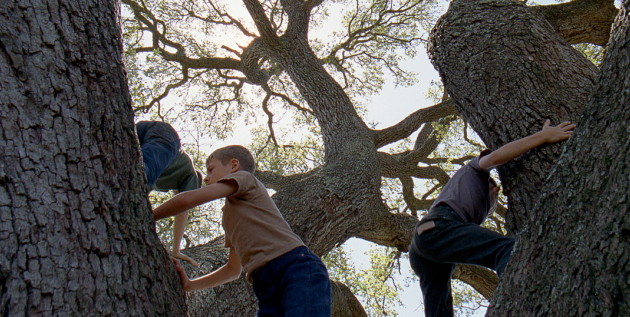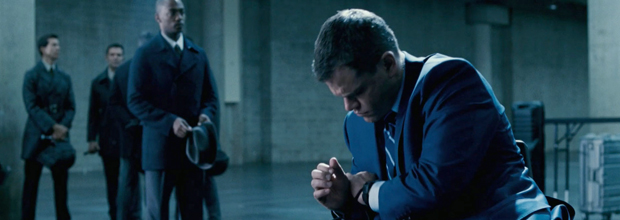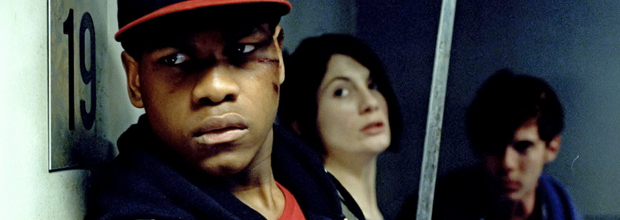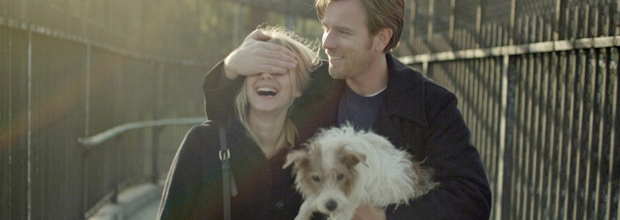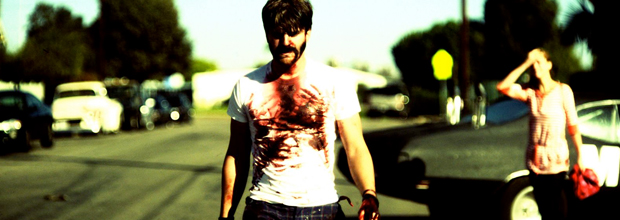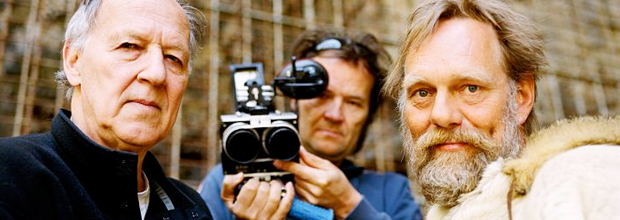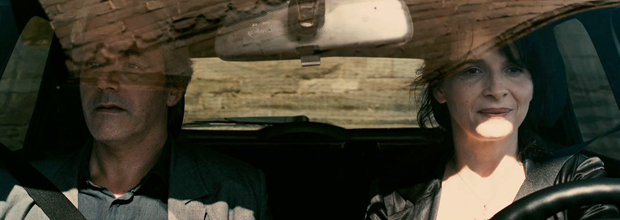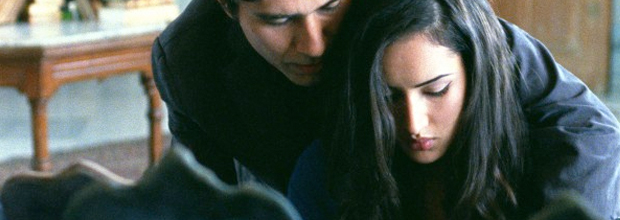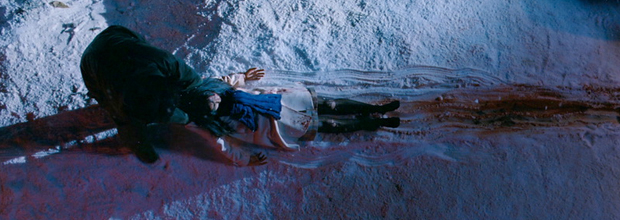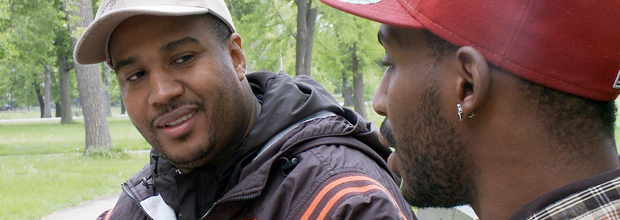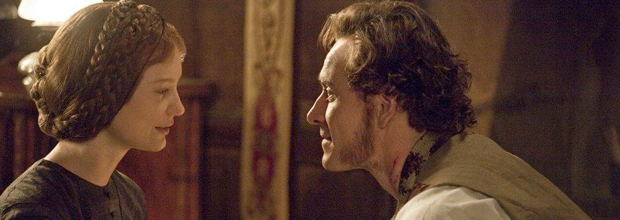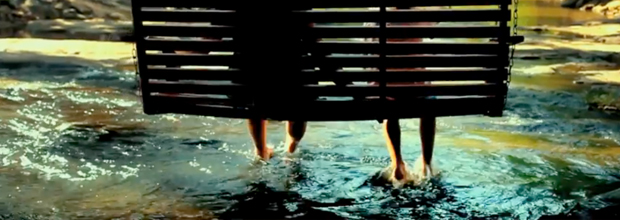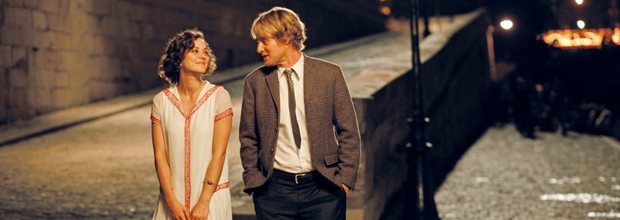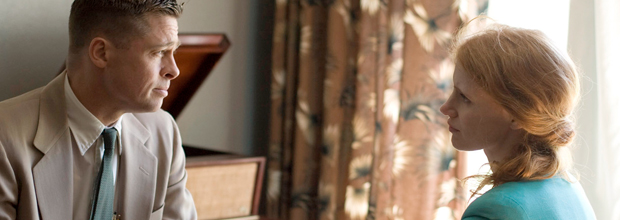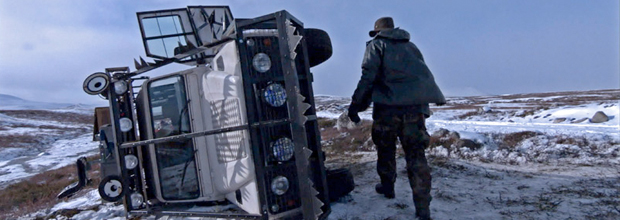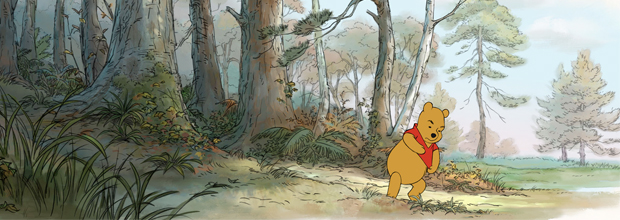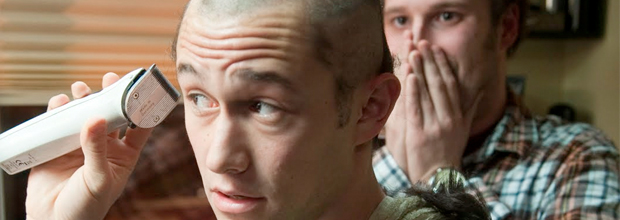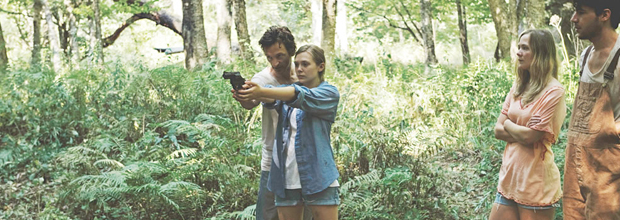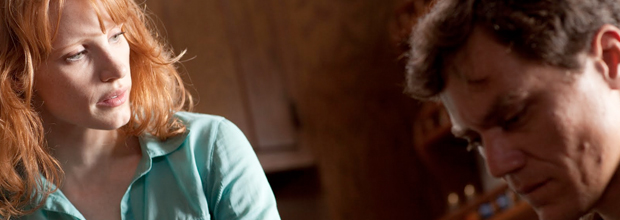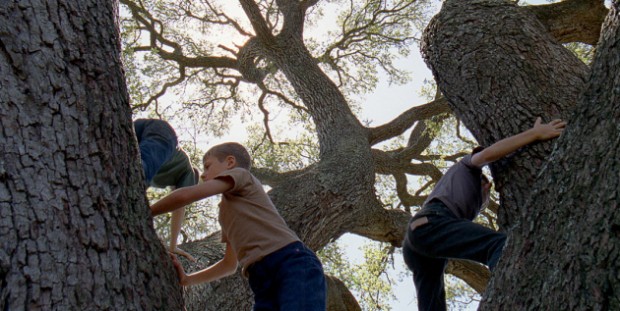
Just about every year around this time, many filmgoers complain that it has been disappointing experience at the cinema. Here at The Film Stage we’ve handpicked our select favorites in an attempt to disprove that theory. We count down the best films we’ve seen in the first eight months in order to give you a must-see list before we head into the busy awards season. We also count down a few awards contenders coming in the next few months that we’ve already had a chance to check out. See the list below in alphabetical order (and selection limited to US theatrical releases) and let us know if we missed any of your favorites.
The Adjustment Bureau (George Nolfi)
Based on a short story by philosopher and sci-fi poet Philip K. Dick (he inspired Blade Runner, Minority Report and Total Recall), writer/director George Nolfi attempts to inject some heart and brains into this popcorn sci-fi blockbuster, and mostly succeeds. It belongs on this list because while most studios and directors are fine with tossing CGI-laden, comic-book-inspired nonsense at us (Thor, Green Lantern), The Adjustment Bureau actually has something to say. Matt Damon is entirely convincing as a ballsy, antsy congressman whose chance meeting with a ballerina (Emily Blunt) leads him down a path which is completely divergent from the one he was “meant” to follow. That’s where The Adjustment Bureau comes in, a horde of suited, partially-omniscient bureaucrats who labor to keep Damon from his lady love at every turn – even if it means stopping time entirely and manipulating reality itself. The movie sometimes stumbles on its own thinking-blockbuster ambitions, but to me, that’s all the more reason to admire it. Led by Mad Men‘s John Slattery, the Bureau is revealed to be not quite as all-knowing as they want you to think they are: is this a sly indictment of the religious right, who have shanghai’d most of the Republican party and are busy erasing the American middle class? Maybe. But Nolfi – one of the writers of Ocean’s Twelve and The Bourne Ultimatum – lets the allegory fade into the background and lets the mystery of Damon and Blunt’s star-crossed infatuation take center-stage. There’s real magic there. – Anthony Vieira
Armadillo (Janus Metz Pedersen)
A Danish documentary that follows a group of soldiers on their first deployment to Afghanistan, Armadillo blew me away when it screened at TIFF. This was the War on Terror onscreen like I had never seen it before. From the comfort of the audience, I watched bored soldiers, stationed only 800 meters away from Taliban territory, grow cynical, angry, and distrustful as operations intensified. Later I would see Restrepo, a similar documentary from an American perspective. Armadillo, edited more cohesively and less intrusively, is the better film. Metz and cameraman Lars Skree went into battle themselves to get their footage, some of which generated controversy in Denmark after it was used to accuse soldiers of breaking the rules of engagement. But controversy alone doesn’t earn a film a spot on this list. Armadillo is here because, as a harrowing real-life portrayal of the human consequences of the War on Terror, it is one documentary every politically-conscious citizen should see. – James Battaglia
Attack the Block (Joe Cornish)
It’s rare that a director is honestly able to capture the rebellious spirit of youth that make films like The Goonies forever cherished in our hearts, yet Joe Cornish in his directorial debut is able to successfully merge comedy, horror and sci-fi while maintaining a true sense of camaraderie between his characters. Featuring a cast of fresh faces whose kinetic swagger jumps off the screen with each burst of British slang, Attack the Block represents an homage to the alien invasion formula with a wickedly contemporary twist that breathes real life into a fantasy filled film. The end result is a pastiche of cinematic styles that under the influence of Edgar Wright creates the most enjoyable movie experience of the summer. – Raffi Asdourian
Beginners (Mike Mills)
For someone like me, who typically dislikes romantic comedies, writer-director Mike Mills has accomplished something remarkable; he has created a film so infused with cute, sweet moments, but has grounded them in an interesting, heartbreaking way that makes one appreciate the ability of tenderness to overcome the bitterness of life. One thing I had figured out about this film from the trailer was that Oliver’s father (played by Christopher Plummer), was going to die. Instead of this being a major spoiler, the film states this fact within the first five minutes, and what we then have is the story of Oliver (Ewan McGregor) falling in love with Anna (Melanie Laurent), while grieving over the loss of his father, while also overcoming his fear of relationships brought on by his parents’ loveless 44 year marriage. Revealing the past in flashbacks, both of his parents in his early childhood, as well as the months leasing up to his father’s death, Oliver finds himself at a crossroads of self-realization, trying to make sense of his own life before being able to break free from those things holding him back. Supported by strong performances and playful visual touches, this film is both charming and genuinely touching, making it one of the must-sees of the year. – Kristen Coates
Bellflower (Evan Glodell)
You’re not going to see another film like Bellflower this year, or more than likely, most years. They don’t make movies this sweet and dangerous, funny and deranged, sick and delightful. Glodell, as writer/director/lead actor, crafts a premiere film that runs alternately on optimism and fatalism, featuring a muscle car that is fueled solely by machismo. It’s an original, audacious film whose power alone could overwhelm that could easily get completely out of control if not for the grounded, lived-in performances that anchor the first act. This isn’t a film that everyone will enjoy (what with the copious amounts of extreme violence both physical and psychological that dominate the film’s final act) but it’s one that everyone should respect. See it now for the eventual indie cred when you drop, “yeah, I saw Glodell’s first movie in theaters.” – Michael Anton
Bridesmaids (Paul Feig)
Now that this crass comedy has earned more than $265 million worldwide, it is hard to believe it was ever considered a risk. But many thought that heralded producer Judd Apatow was doomed to fail with an R-rated comedy that lacked an A-listers, and was instead stacked with a cast of lesser-known comediennes. (Didn’t he get the memo that women just aren’t funny?) Of course, now that Bridesmaids has proved Apatow’s most financially successful feature, he can laugh all the way to the bank. Kristen Wiig, who co-wrote the script with Annie Mumolo, stars as a late bloomer who freaks out when her relationship with long-time bestie (Maya Rudolph) is threatened by the latter’s impending nuptials and inherent entrance into maturity. While the flick is packed with blisteringly hilarious performances, Rose Byrne has rightfully drawn notice for her mean comedic turn as Wiig’s rival, but it is the fearless Melissa McCarthy who has proved Bridesmaids breakout star with her pratfalling yet endearing tomboy Megan. With its cheeky blend of humor and heart (not to mention a truly outrageous gross-out comedy sequence), Bridesmaids lives up to Apatow’s past summer efforts, and proved the most popular and praised comedy of the summer of 2011. – Kristy Puchko
Cave of Forgotten Dreams (Werner Herzog)
Cave of Forgotten Dreams is legendary director Werner Herzog‘s 3D documentary about 30,000 year old cave paintings. The 3D technology is used naturally and not to poke the audience with things, as filmmakers are so fond of doing these days. Here, as the camera pans slowly over the paintings’ flowing contours, you realize what 3D can accomplish. There really is no way to portray the intricacy of these paintings in a flat 2D film. Marveling at the beauty of the images and guided by Herzog’s trademark narration, we’re led to wonder whether humanity’s artistic should may have awakened in this very cave, or one like it, back when Neanderthals and Homo Sapiens shared the Earth. To some this will sound pretentious. Fans of the director’s previous work, especially his excellent Encounters at the End of the World, will see it for what it really is, documentary philosophy. Herzog is a master, and while Cave of Forgotten Dreams isn’t his best work, it’s certainly one of the best movies of this year. – James Battaglia
Certified Copy (Abbas Kiarostami)
Iranian auteur filmmaker Abbas Kiarostami has never made a feature length dramatic narrative outside of his home country of Iran until recently, when the now 71-year-old filmmaker broke new ground in Tuscany, Italy with Certified Copy. Bearing all the hallmarks of classic Kiarostami from long conversations in cars to direct eye contact with the camera, the film is a tale of romance wrapped in enigma that questions the very nature of art. With subtle and nuanced performances from both lead actors, Juliette Binoche and William Shimell, Certified Copy is a sumptuous cinematic treat that will leave you pondering the mystery of who these characters were to each other while reflecting on the essence of what it means to be in love. – Raffi Asdourian
Circumstance (Maryam Keshavarz)
At once a star-crossed romance and a parable for the revolutionary spirit, this Iranian drama features some of the best cinematography, writing and acting around these days. Punk rock and club music populate the film, adding edge to a common story. The color tone goes from hot to cold from scene to scene, never feeling out of place or abrupt. The plot moves calm and cooly, a deliberatey-paced slow burn that brings all of the issues to the surface deep into the third act without ever patronizing the viewer. It’s a story told a dozen time in a dozen ways, but rarely this good. – Daniel Mecca
I Saw The Devil (Jee-woon Kim)
In his follow-up to the wild western The Good The Bad and the Weird, South Korean director Jee-woon Kim takes the Korean revenge genre to a wonderfully horrific new level with a ghoulish game of cat and mouse. After his fiancée is eviscerated by a grim and merciless killer (Oldboy‘s Min-sik Choi), a trained secret service agent (Byung-hun Lee) goes rogue to extract his own twisted version of vengeance. While horror fans can revel in the inventive, gruesome and deeply haunting scenes of violence, Kim slyly offers a subtle and thought-provoking commentary on onscreen violence by varying the perspective. When grim serial killer inflicts torture on his innocent victims, a deep sense of dread and repulsion pervades theaters. But when the revenge-fueled hero is delivering brutal pain upon this murdering fiend, the feeling of exhilaration and thrill is undeniable. These breakneck changes are as deeply haunting as the film itself, and will leave you to question this dark hero and his murky methods long after the credits have rolled. Still, for all the grit and gore, dynamic performances from Choi and Lee, make I Saw the Devil wicked fun. Undoubtedly, this is the year’s smartest thriller to date. – Kristy Puchko
The Interrupters (Steve James)
The film’s pedigree should already get you in the door. Steve James, the director of Hoop Dreams, and Alex Kotlowitz, the author of “There Are No Children Here,” head to Chicago to film a documentary on CeaseFire, the subject of Kotlowitz’s recent New York Times Magazine piece about a group of ex-convicts trying to curb violence in beleaguered Chicago. The film is already garnering press that describes its “importance,” equally a mark of excellence from critics and a death strike for the rest of the film-going culture (“so it’s relentlessly sad, great”). While it does center on death and the cyclical nature of violence, this is really a film about life. The Interrupters is about this group of outstanding individuals, what they’ve lived through, and the lengths to which they are willing to go to prevent others from making the same mistakes. It’s a vibrant film that explores the irresistible force meeting the immovable object and bares witness to all of the humanity therein. Oh, and it’s really important, too. – Michael Anton
Jane Eyre (Cary Fukunaga)
Fresh off his breakthrough drama Sin Nombre, director Cary Fukunaga was given an opportunity to once again bring Charlotte Brontë‘s Jane Eyre to life. It’s a stunning sight that utilizes his singular aesthetic, the decision to use natural light throughout the production, and cinematographer Adriano Goldman’s angular framing. We’re shown a story of forbidden love through compositions of period dress, gnarled landscapes, and barren trees all in the atmospherically minimalist glow of twilight and the flicker of candles. The central bond forming between Mia Wasikowska‘s Jane and Michael Fassbender‘s Rochester is one separated by secrets hidden deep into the darkness of an old mansion estate, shrouded in mystery by chiaroscuro shadowing and Dario Marianelli’s haunting score. A tonal masterpiece of gorgeous visual impact, it’s easy to forget the compelling tale beneath the artifice. But, in the end, the truth of Jane Eyre rests with the love held dear between these two broken souls. Sometimes love exists in a dark world: its survival becomes that much rarer as a result and its success that much sweeter. – Jared Mobarak
Life In A Day (Kevin MacDonald)
I was lucky enough to catch this movie as it was meant to be seen: streaming on YouTube. This living, breathing time capsule of a documentary is a truly global experiment: assembled from over 4,500 hours of footage from 80,000 filmmakers in 140 countries, director Kevin Macdonald (State of Play), and editor Joe Walker somehow crafted a hypnotic, funny, heart-rending, eye-opening and unexpectedly moving account of a single day, July 24, 2010. This project could not have happened in a time before YouTube and the internet. The filmmakers actually sought out parts of the world where just getting enough to eat is a trial, nevermind finding an HD video camera. They provided cameras to document these people’s lives. The result is a powerful document of a day in the life of the world at large: you’re forgiven for expecting 94 minutes of cute puppies chasing ducks, but instead you’ll see people waking up, heading to work, getting in elevators, riding on motorcycles, milking goats, scavenging for food, tending their crops, suffering silently, being human. You’ll see a snail. Babies. The lives of people who you know exist in an intellectual way, but whose day you’ll never know and haven’t seen. Life In A Day is a marvel. Few other films this year have been as powerful, inspiring and humbling. – Anthony Vieira
Midnight In Paris (Woody Allen)
I know, Woody Allen-philes: the Woodman’s 2011 offering isn’t as great as Crimes and Misdemeanors or Manhattan or as brutally intense as Match Point. No, Midnight in Paris is a pure charmer, through and through, full of wonderful literary references to befuddle the ignorant while paying tribute to the City of Love’s libertine past. Owen Wilson is at his warmest and most vulnerable playing a hack screenwriter who joins his fiancee in Paris on holiday and finds himself back in the 1920’s at midnight, rubbing elbows with Ernest Hemingway, Gloria Steinem, F. Scott Fitzgerald and his live-wire love Zelda, not to mention Adrien Brody‘s hysterically funny Salvador Dali. How can this be? Who knows? It’s never explained, and you won’t care. As our writer falls in love with a girl who only exists in the past, he sees his materialistic, cheating fiancee as the spoiled bore that she is. Allen is turning a spotlight on our own harsh, in-sensitized time. Maybe things were better in the past, but by the end of Midnight in Paris, Woody Allen leaves us with a wondrous sense of hope for the future. – Anthony Vieira
Meek’s Cutoff (Kelly Reichardt)
The best Western of the year doesn’t even have cowboys (or aliens). Instead, Meek’s Cutoff is fueled by evoking feelings of dread, ones that only increase with each passing minute. The constant fear of the environment, leaders, unseen enemies, and a lack of a precious resource all feel relatable, and that’s no coincidence. The script by Jonathan Raymond says more about the United States’ current political climate than any other movie I’ve seen this year, which Kelly Reichardt translates to the cinematic medium nearly flawlessly through her confident, measured directing. All the performances underline these aforementioned conflicts, particularly Bruce Greenwood — appearing in a manner that leaves many people unaware that they’re watching Bruce Greenwood — as the titular Stephen Meek, the world’s worst guide. And even if some things can be read with just a little bit of digging, other elements left me confounded — which also leaves me completely thrilled. This challenges its audience more than your typical modern release, but those who go along with the journey are almost guaranteed to come out thinking. It deserves some kind of praise just for doing that, but being a great film is good enough. – Nick Newman
Senna (Asif Kapadia)
As we adapt to watching movies on laptops and iPads, it’s thrilling to watch a film that was made for the big screen. Especially one as well-made as Asif Kapadia‘s first foray into documentary, the visually arresting Senna. A bio-pic featuring the Formula 1 racing legend Ayrton Senna, the film focuses on his life, which means it occurs in and around the race track. After sorting through more than 3500 hours of film, Kapadia is left with a film that barely keeps up with its titular character, racing through his greatest career highlights and some of his personal struggles. If all of the incredible footage of the races isn’t enough (remind yourself to breathe when the camera moves into the driver’s seat), then Senna himself is just as riveting. He proves to be insightful, honest, confident, religious, and out-spoken about all of it. In essence, he’s everything athletes are rarely allowed to be. While I don’t know the man, it seems like he got the film he deserved. See it while you can still experience this movie like its supposed to be seen: big, loud and mean. Don’t let your first experience of this movie be in a tiny clip package on your TV screen come Oscar time. You owe it to yourself to see it as big and mean and loud as it’s supposed to be. – Michael Anton
Submarine (Richard Ayoade)
By far the most criminally under seen film of the year. Richard Ayoade‘s feature debut is a sweet, honest, and a lovably charming coming of age tale about a cold and calculating teen falling in love for the first time. Oliver Tate is a pretentious, and at times, creepy kid who could not be more well-intentioned. Even when he plots to kill his first-time girlfriend’s dog, there’s no malice to the boy. Similar to his distant turned vulnerable girlfriend, Oliver is incredibly endearing. Submarine is presents a visually enchanting and hilarious story about love beginning and love dying. – Jack Giroux
The Tree of Life (Terrence Malick)
After thirty years and arguably four masterpieces of cinema, auteur Terrence Malick returned to the big screen with his most visually poetic tome yet. The Tree of Life is less the kind of narrative the general public seeks out and more the abstract work of art cinephiles strive to uncover. Spanning time itself by showing the world’s creation straight on towards the filmmaker’s vision of an afterlife, this look into the evolution of a boy caught within questions of faith, family, love, and loss is so much bigger than any one character. Young Hunter McCracken is merely our entry point into the spiritual musings of a visionary director at the top of his game, once more reaching beyond the normal limitations of cinema’s scope. Through him we ask big questions like: Are we playthings left to whither from abandonment? Are we precious creatures led along onto a path of greatness? Are we simply left alone to our own devices, the randomness of life our only means of rule? Malick shows that maybe we can live forever through the love and memory left behind; immortality achieved as soon as our creation is made reality. – Jared Mobarak
The Troll Hunter (André Øvredal)
From the dark forests of Norway comes an odd adventure that has unexpectedly become one of my favorite films of the year. While neatly blending elements of the mockumentary, adventure, and found-footage genres, Troll Hunter tells the savage tale of three cynical college students whose class project leads them to stalk an abrasive and mysterious hunter only to uncover that his prey is not off-limit bears…but trolls. Giant, untamed, Christian-detecting trolls! With a sly sense of humor director André Øvredal maintains a low-frills look while delivering stunningly effective and intriguing CGI monsters, creating a thoroughly captivating world full of danger and childlike wonder. But perhaps most impressively, he rebelliously bucks the recent trend of nihilistic and cynical horror by delivering relatable and curious characters that are forced to abandon their own skepticism when confronted with monstrous creatures of myth. This is the kind of movie that sneaks up on you. With its blend of whimsy and scares and its grounded but engaging performances, Troll Hunter is a feature that fully realizes its potential. See it now before Chris Columbus makes his sure-to-be inferior retread. – Kristy Puchko
Winnie The Pooh (Stephen J. Anderson & Don Hall)
Disney revisits hand-drawn animation with this charming new adventure of beloved bear Winnie the Pooh and his daffy friends. In this short feature (clocking in at only 63 minutes), three different stories are lovingly interwoven, offering plenty of screentime for each of the iconic and adored residents of the Hundred Acre Wood. And fans new and old have plenty of reasons to celebrate since rather than trying to update Winnie and crew with some sort of ill-fitting edge, Disney chose to keep true to the innocent tone of this property while blending in clever innovations. References to past Pooh cartoons give long-time fans the opportunity to revel in well-earned nostalgia, while gorgeously crafted visuals, dynamic voice work, and dreamy new songs (some provided by Zooey Deschanel and M. Ward of the indie folk duo She & Him) will provide a fresh introduction for a new generation of silly ol’ bear-lovers. If you’re a fan of animation, Disney, or just strong visual storytelling, you should rush to see this while it’s still in theaters. – Kristy Puchko
Win Win (Thomas McCarthy)
During the apex of a superhero-dominated blockbuster season, this little Paul Giamatti movie went mostly unnoticed. That’s a shame. Win Win is funny, heart-breaking and complicated, featuring a central performance by Giamatti which, in a just world, would finally garner the Oscar nomination that has shockingly eluded him his entire career. As family man and small-town lawyer Mike Flaherty feels the recession’s death-grip closing in, he stumbles across a way to make an extra $1500 a month by declaring himself the guardian of an elderly, infirm client (Burt Young). The plot thickens when the old man’s runaway grandson shows up, followed by his estranged daughter. To keep his family afloat, Mike has to keep them all at bay – including his wife, who doesn’t know about his little arrangement (which isn’t strictly legal). Add Mike’s gig as a local high school wrestling coach (the old man’s grandson is a wrestling prodigy, as it turns out) and the scene-stealing Bobby Cannavale as his enthusiastic pal, and you’ll find that Win Win is one of the best films of the year. The fate of some fantastic parallel reality may not hinge on the outcome of Mike’s desperate choices, but the fate of his mortgage might. Which of these applies directly to you? – Anthony Vieira
Must-Watch Fall Films We’ve Already Seen
50/50 (Jonathan Levine)
Cancer is a devastating, maddening disease. A healthy individual can become rapidly sick with very little solutions. Somehow The Wackness director Jonathan Levine is able to delicately mix humor and charm with the inherent agony that such a life-shattering illness brings. Stepping in for James McAvoy at the last minute, Joseph Gordon-Levitt brings a wealth of humanity to his lead role, with Seth Rogen delivering his most well-rounded performance in years. The comparisons to Judd Apatow‘s Funny People are warranted, but Levine is able to effortlessly concoct all-out laughter right before bringing on a well of tears. Bring tissues, and don’t be alarmed if after the film you have the urge to hug everyone in the audience; it is a natural reaction. – Jordan Raup
Drive (Nicolas Winding Refn)
Nicolas Winding Refn made a splash at Cannes, and for good reason. Drive is not a typical crime caper, but an ambitious, ’80s influenced fairy tale about a modern day samurai in love. That samurai is Driver, who Ryan Gosling bring an intensity, a warmth, and internal working to. This is the type of performance that actors get remembered for, the one that proves what they’re fully capable of. Gosling has shown great potential in the past — Half Nelson, Blue Valentine, Lars and the Real Girl, and The Believer — and here, he not only delivers on that potential, but proves he’s one of the most exciting actors working today. Darkly funny, cool, efficient, Drive represents visual storyteller at its finest. – Jack Giroux
Martha Marcy May Marlene (Sean Durkin)
In watching Martha Marcy May Marlene, I found myself in such disbelief that is director Sean Durkin’s feature debut; so beautifully shot, so masterfully paced, so intriguingly mysterious. Martha (Elizabeth Olsen) is a confused, scared girl, fleeing the secluded farming community she has resided with for sometime, she reunites with her estranged sister Lucy (Sarah Paulson). Being reintroduced to what was once known to her, Martha is unable to adjust to the real world, and we watch her begin to unravel as disturbing flashbacks help us understand what has brought her to this point. The film moves forwards and backwards in time, using interesting connectors to link the points; her sipping a beverage at a house party may cut to one of her drinking at the farm. As the film progresses, the separation between the two worlds begins to blur. Do the sound of rocks hitting outside her window represent the other communes coming to get her, or are Martha’s delusions getting the best of her. Durkin has proven to be a man of mystery, and keeps you guessing right to the end. – Kristen Coates
Melancholia (Lars von Trier)
Earlier this year, notorious Danish filmmaker extraordinaire Lars von Trier presented his latest morbid curiosity Melancholia to the crowds of the Cannes film festival. However, the quality of the film was overshadowed by juvenile and wholly inappropriate behavior from its creator at a press conference following the first press screening, resulting in a permanent ban from the prestigious festival he once called home. It’s a tragedy of von Trier proportions in that Melancholia could be his most successful film to date, as it is definitely his most accessible. Garnering Kirsten Dunst an award for her first truly mature performance as a nihilistic bride, this follow up to Antichrist takes the apocalyptic arthouse genre to a whole other level. Mixing a blend of sci-fi, melodrama and despair with just a touch of humor, Melancholia is a sublime piece of cinema from a meticulous genius in a state of great depression. – Raffi Asdourian
Take Shelter (Jeff Nichols)
The Tree of Life star Jessica Chastain may have eight films hitting theaters this year, but one of her strongest turns is in Jeff Nichols‘ apocalyptic family drama Take Shelter. With an Oscar-caliber lead performance from Michael Shannon, he begins to have premonitions of an impending disaster and chaos. Through subtle and impressive special effects, Nichols never tiptoes past the line of believability. If we he went too far over the edge these instances could easily turn laughable. Instead, we are right with Shannon’s character as he simply wants the best for his family, while dealing with these serious issues. Nichols creates an expertly crafted crescendo with a gripping climax in which you have no choice but to be on the edge of your seat, to see if the world will indeed implode. – Jordan Raup
Warrior (Gavin O’Connor)
This family drama will wind up being one of the biggest surprises this season. The generic ads sell it as a run-of-the-mill sports film, but director Gavin O’Connor made a compelling film about redemption, brotherhood, and fatherhood. There’s only a beat or two that borders on contrived or false, but overall, the film makes a possibly ridiculous concept believable. Joel Edgerton, Tom Hardy,and Nick Nolte deliver heartfelt performances that feel honest, rather than calculated. Nearly every false note that O’Connor hit with Pride and Glory he got right in Warrior. – Jack Giroux
What films top your best of 2011 list? What are you looking forward to this fall?

